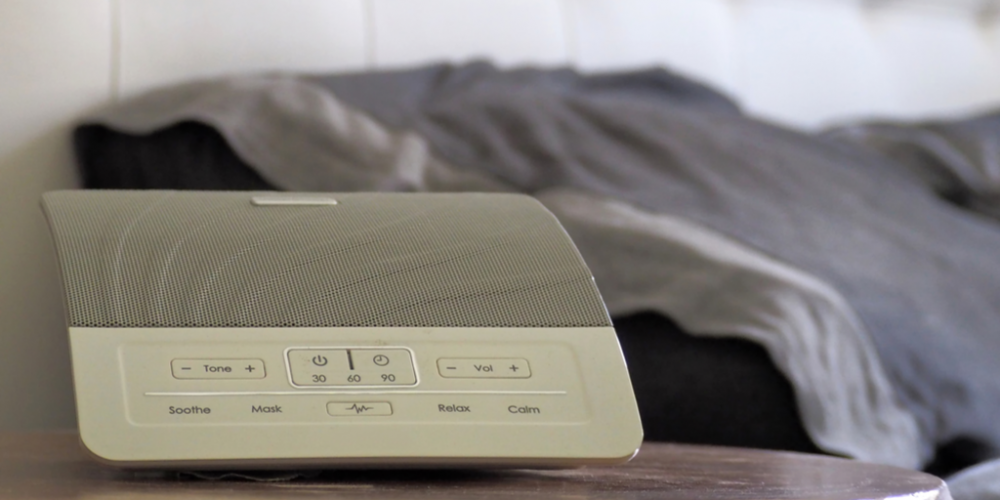How to Fall Asleep with Tinnitus
Years ago, someone told me the damage to a veteran’s hearing begins the first day they fire a weapon. For prior or current military members, that day almost always comes shortly after the first time they don a uniform. Even with proper hearing protection, a small explosion right next to your head is going to take a toll.
Like many veterans, the damage to my hearing came in the form of tinnitus, a constant ringing in my ears. In my case, I’ve got a few different tones happening in both ears. My left ear tends to be the most prominent, buzzing along 24 hours a day at about 1 kilohertz. It fluctuates depending on a variety of factors including my stress level, blood pressure, barometric pressure or if I’ve had a couple of drinks. About every month or so, something will specifically trigger it, and it’ll amp up until my entire head is ringing and I’m incapacitated for either several seconds or minutes.
My story is not unique. I know this not only because the Veterans Administration (VA) statistics tell me that tinnitus remains the number one service-connected disability, but also because nearly every single veteran I’ve spoken to over the last 30 years has a similar story.
Back in the day, when we brought up the weird ringing in our ears, many of us were told there just wasn’t anything we could do about tinnitus. It was an answer most of us just accepted, and we learned to live with the sound or filter it out in our day-to-day lives. My brain got pretty good at blending the ringing into the background, and most of the time (if it didn’t kick into overdrive) I was able to ignore it.
However, that was never the case when it was time to fall asleep. The darkness and silence of the night have always been the worst time for my tinnitus. Figuring out how to fall asleep with tinnitus became a battle of will and a never-ending game of finding ways to tune out the constant ringing. It was a game I often lost, leading to sleep deprivation, a condition that studies tell us can negatively effect on our overall health and well-being.
Working with the Heroes With Hearing Loss® program has taught me a valuable lesson when it comes to tinnitus and sleeping – there are things you can do to help relieve tinnitus.
The biggest step you can take is to find a white noise solution that works for you. Sometimes that can be as simple as a fan, or a radio playing soft music. A variety of white noise solutions that most of us are familiar with are easy to come by, but here are a few you may not be familiar with:
Sound Therapy Machines
These devices produce background noise and most offer a variety of sounds that can mask the sound of your tinnitus to help you relax and fall asleep. Typically, these machines play environmental sounds such as ocean waves, rainfall, city noises, air conditioning, white noise or chimes, so you can experiment and see what works best for you. Prices range from $15-$300. Keep in mind, if you sleep with another person who finds background noise distracting, you may want to try another option. After all, hearing-related issues are just as much about relationships as they are about your comfort and health.

Sleep Pillows
Sleep pillows are one of my favorites. A sleep pillow functions much like a sound machine but limits the sound to the areas on a pillow where your ear would rest. Sleep pillows cost anywhere from around $15-$129. They are a good choice for anyone who wants to experience the benefits of ambient environmental sounds without disturbing others.
Meditation
Meditation is a practice that usually involves remaining still to focus on something, such as a candle flame, your own breathing, a phrase or a sound. Many people meditate to cope with stress and relax their bodies. Most research suggests that blood pressure and stress levels directly affect the levels of tinnitus we experience.
Meditation is a great way to decrease those factors, particularly right before bedtime. I’ve been told that in some cases meditation can even allow you to make peace with tinnitus in general.
Practicing meditation can help you associate the sound of tinnitus with relaxation instead of stress, making your symptoms more tolerable overall.
For some lucky folks, the sound of their tinnitus decreases or disappears completely during meditation.
I’ve been practicing meditation for the last 30 years and it has been the single-most effective solution not only for my tinnitus but also a variety of ailments and aches I’ve acquired from my time in uniform. Be advised, however, that it does take a bit of practice and some perseverance to get the knack for it. If you stick with it, however, it can be a pretty effective solution.
If you are interested in learning a simple meditation practice that has been used in the military, check out the Mindful Breathing for Veterans blog article.
Tinnitus Relief Apps
If you’re tech-savvy, you can find a variety of apps to help you mask the sound of your tinnitus, meditate or fall asleep. See what’s available by using an Internet search engine to find tinnitus relief apps or online app stores such as the Apple App Store and Google Play. You can also purchase soft, wireless headbands with speakers that allow you to comfortably fall asleep while listening to apps or audio from a device with Bluetooth® capabilities.
My last piece of advice is trying not to skimp when it comes to finding a solution. Getting a good night sleep is one of the best things you can do to improve your overall health. Oftentimes, spending a few extra bucks to find the solution that really works for you is well worth it in the end. Don’t forget to contact your nearest Veterans Service Officer if you need some extra assistance. They can help you work with the VA to find a solution that gives you the comfort you deserve.
 Heroes With Hearing Loss
Heroes With Hearing Loss